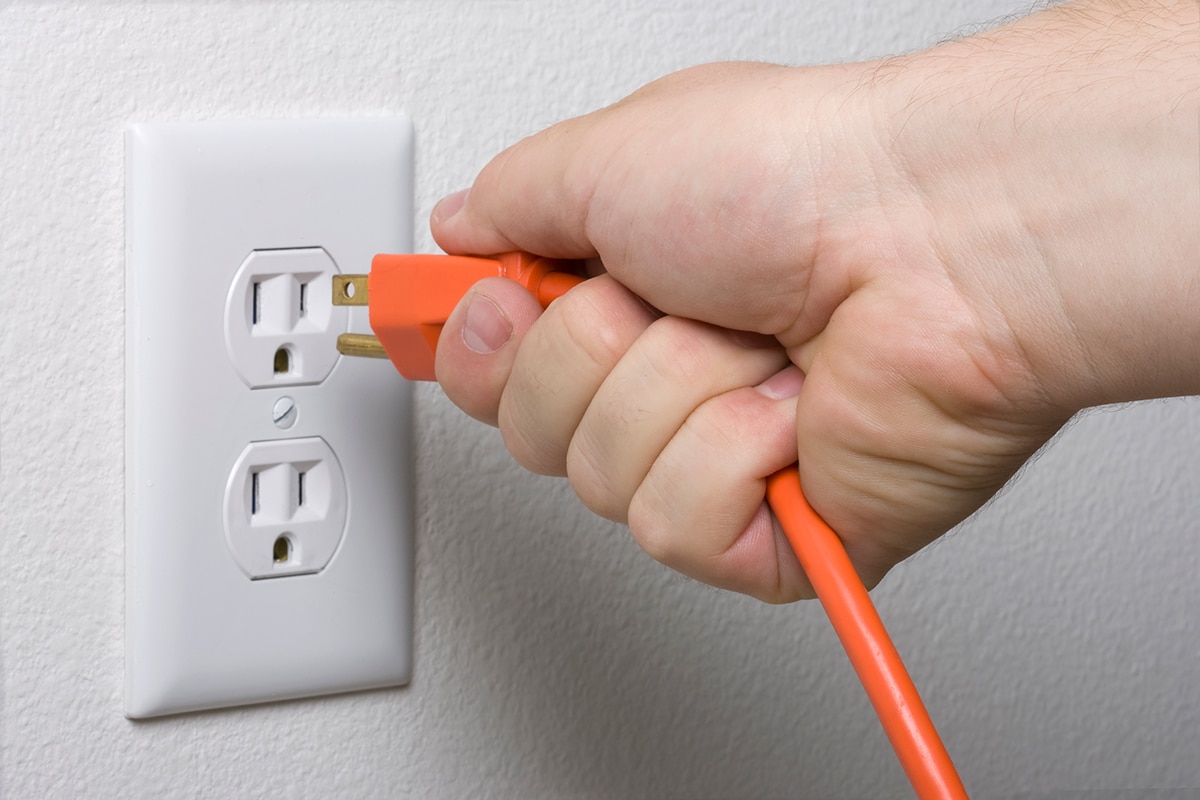Unlike smaller home appliances such as toasters or blenders, air conditioners use more power. You may have noticed that most air conditioners have three-pronged plugs that only fit specific outlets. If your home only has two-pronged outlets, you might consider using an adapter. But is this safe? We have done the research on this question in this post!
Using an adapter is not recommended for air conditioners. Unless your air conditioner has low enough energy specifications or is equipped with a safety mechanism, you should only plug it into a dedicated grounded outlet. Additionally, your air conditioner should not use the same power source as other appliances.
Air conditioners come in many different types and have different energy needs. While you may get away with plugging a portable air conditioner into a regular power outlet, the same cannot be said for more powerful units. Keep reading to learn more on how to safely power your air conditioner!
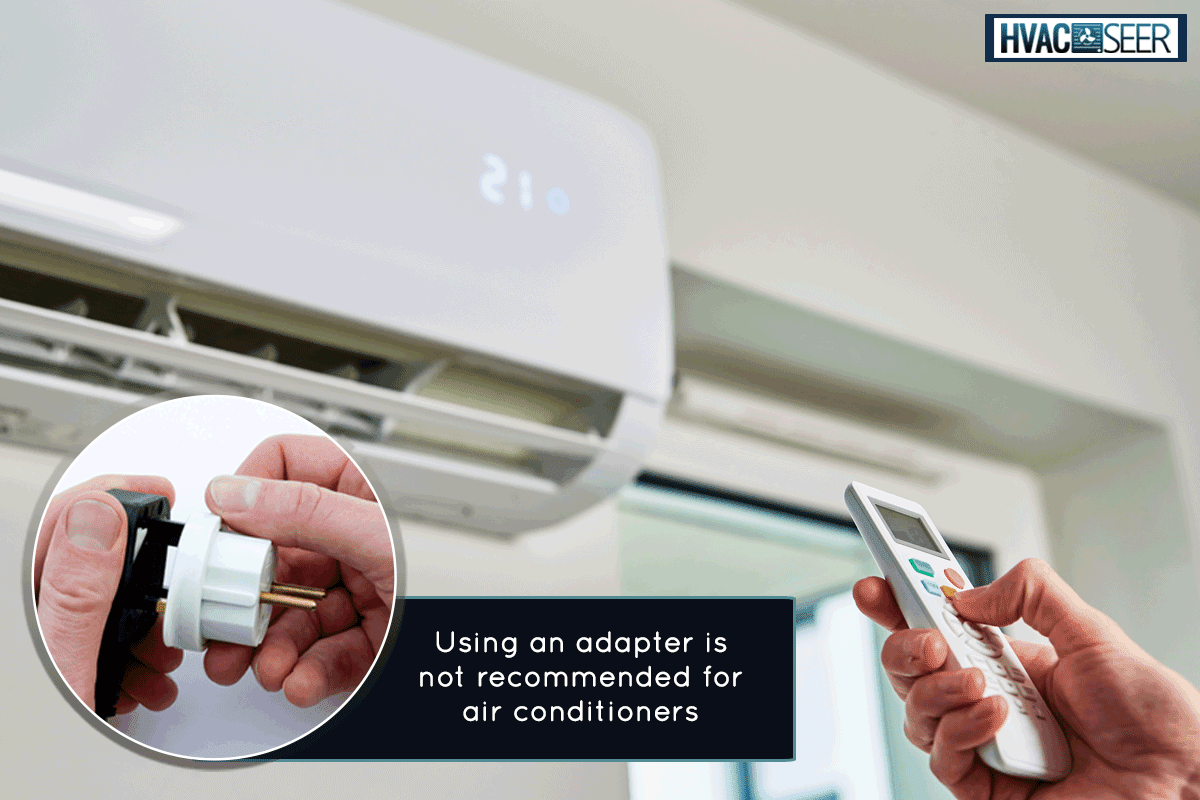
Do You Need A Special Outlet For An Air Conditioner?
The standard electrical outlet in the U.S. is 110 volts. This is enough to power basic appliances like microwaves, vacuum cleaners, phone chargers in your home. This is also enough to power portable air conditioners.
As mentioned, air conditioners can get quite powerful. For example, central air conditioning units need 208/240 volts.
This is considerably higher than your average outlet and needs a separate circuit in any circumstance. The same goes for some split-type air conditioner units.
Adapters are typically used to make the plugs on your device compatible with different outlets.
For example, in the case of air conditioners produced in Europe, those units have different power requirements that may not be suited to American households.
In this case, you would need an adapter. Just make sure it can convert the appropriate amount of voltage so that they line up well. If not, you risk damaging your appliance.
It is a better idea to buy your air conditioner locally. This way, you can avoid any confusion about how much power you need to keep your air conditioner running.
Most U.S. homes are also equipped with power outlets for American-made appliances. Considering this, finding an appropriate power source will not be much of a hassle.
Difference Between Grounded and Non-grounded Outlets
Let's say you use a window-type or split-type air conditioner that runs on 110 volts, 15 amp. You might consider connecting your three-prong air conditioner plug to an adapter for it to fit in a two-prong outlet. Why is this not recommended?
Even if your electrical outlet is equipped to power a 110 volt 15 amp plug, you have to consider the difference between grounded and non-grounded outlets.
Non-grounded Outlets
A non-grounded or ungrounded outlet only has two holes. It has two wires that lead to and from your power source: one live wire and one neutral wire. It lacks a third grounding wire, which is why it is a non-grounded outlet.
Power outlets can be prone to sudden surges of electricity. Without a grounding wire, these electrical surges are free to move outwards and overload your appliance. You will also be at risk of electrocution when this happens with a non-grounded wire.
Grounded Outlets
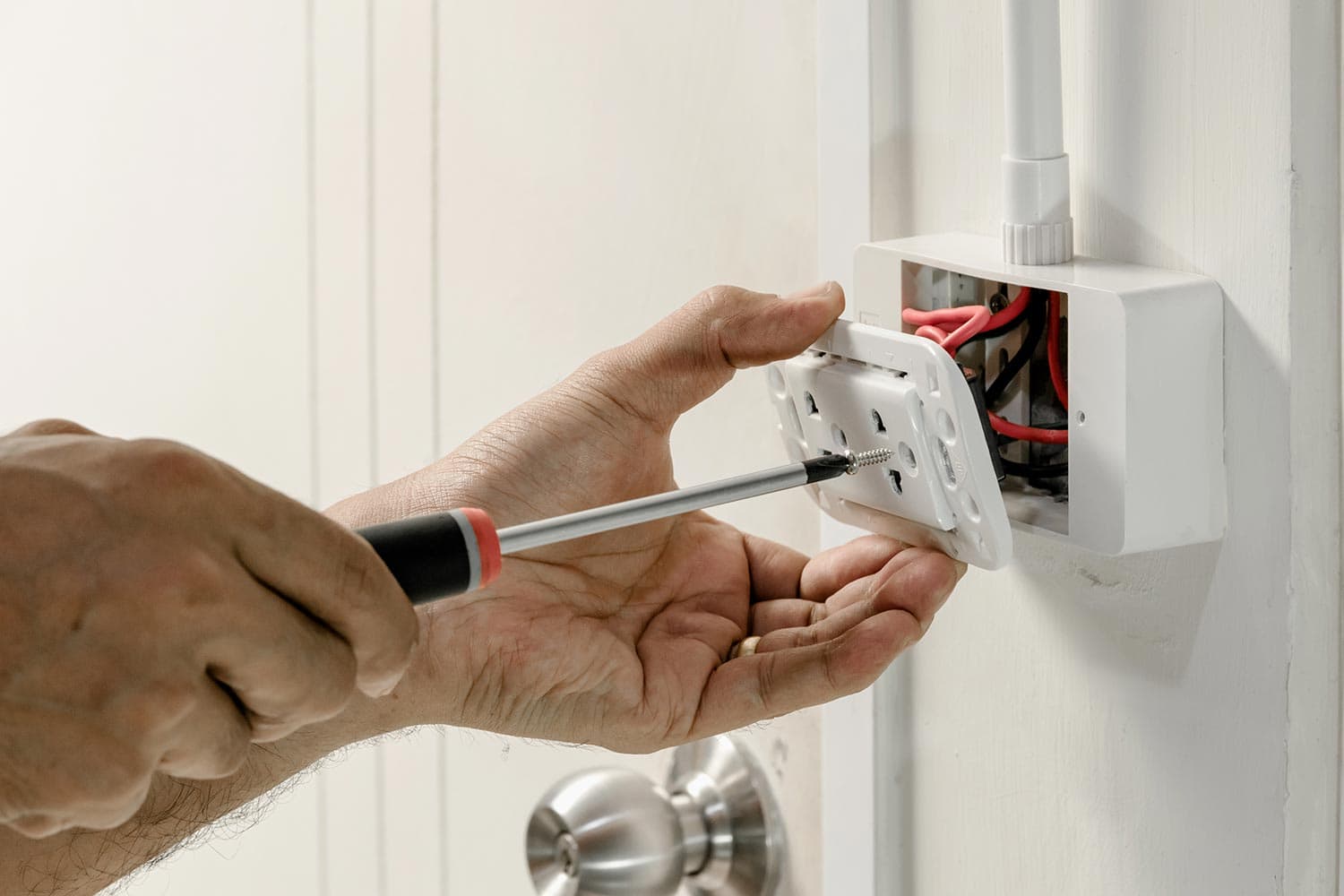
Though you can use an adapter for plugging a three-prong plug into a non-grounded outlet, this can harm your appliance. Since your plug is made for a grounded outlet, this means it needs the existing grounding wire.
As the name suggests, grounded outlets have a third grounding wire in addition to the live and neutral wires. Grounded outlets have three holes. Air conditioner plugs are built for use with grounded wires.
Still, it is best to consult an electrician if you are not sure whether your outlet is grounded or not. There are certainly cases, especially in older homes, where, despite having three holes, the outlet is not grounded.
The grounding wire redirects static electricity or surges of electricity to the ground. It also saves your appliance in case of power outages. Properly plugging in your air conditioner to a grounded outlet is your safest option to extend the life of your appliance.
How To Make An Ungrounded Outlet Safe
While having a surge protector is a good option for non-grounded power sources, it is not the safest. Your best course of action is to contact a licensed electrician for help. Your ungrounded receptacle will need to have its circuit rewired.
Ungrounded outlets are common in homes built before the 1970s. If your house is this old, it is at risk of electrical fires if the outlets are not updated and grounded.
In rewiring your ungrounded outlets, you will need to follow NEC guidelines to ensure your and your household's safety.
Is It Safe To Use Extension Cord With An Air Conditioner?
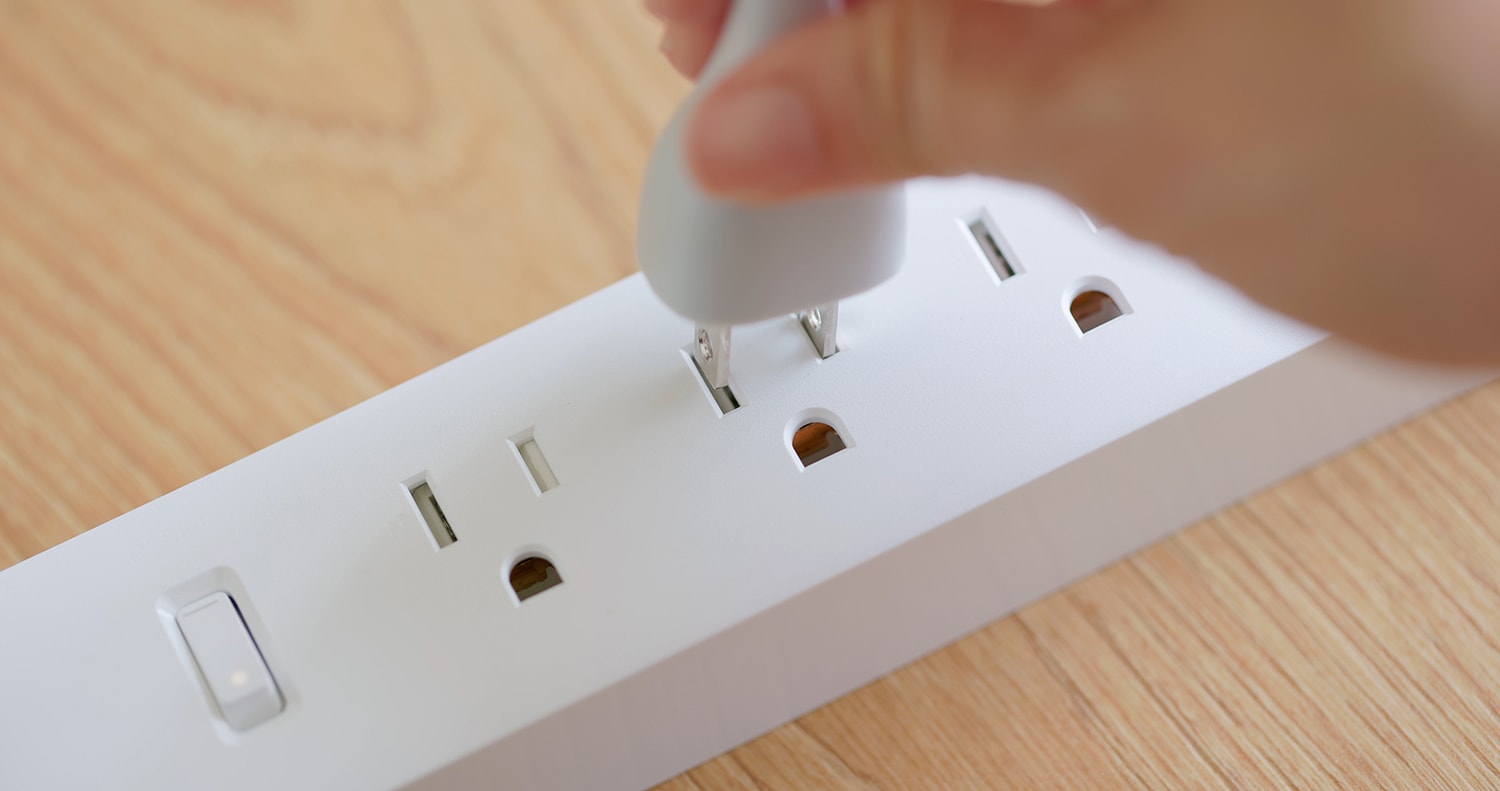
It is not safe to use an extension cord with your air conditioner. While it could work, it is only good for a short amount of time. Even heavy-duty extension cords cannot keep up with the amount of current your air conditioner needs to function for a long time.
There may be some instances where you will need to use an extension cord for your air conditioner. Perhaps you are moving, not yet able to have your electr
Extension cords can be a good temporary alternative, but there are some things you have to keep in mind. First, you have to make sure you are using a powerful enough cord.
Heavy-duty extension cords should be able to handle 12 amps. Know the wattage of your unit and adjust the gauge of your cord with this in mind. This can go up to 1,500 watts, which warrants a 14-gauge extension cord.
Next, keep in mind the hazards that come with using an extension cord for your air conditioner. Do not leave the room for too long if your air conditioner is running on power through an extension cord.
The wires are bound to heat up, and if they overheat, they are capable of starting a fire.
Finally, keep in mind that damage to your air conditioner due to the extension cord can void your warranty. Using an extension cord is only a temporary solution and should not replace a dedicated grounded outlet for your air conditioner.
How Do You Ground An AC Unit?
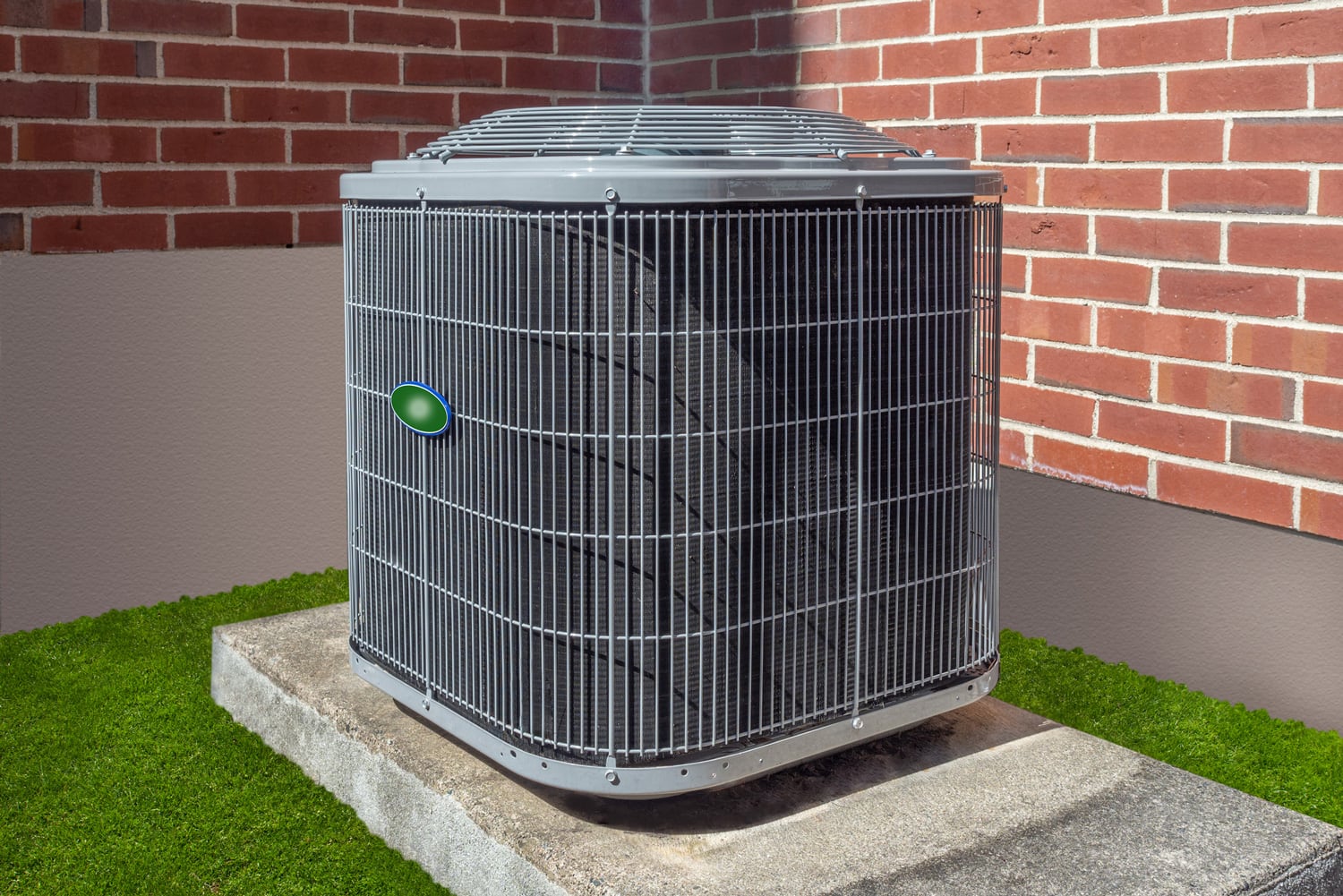
Since air conditioners use a lot of power, they are more at risk for energy surges that can damage the appliance or cause accidents. Grounding happens when there is a fault in the wiring system, and there is too much negative charge that overflows.
If the electric current is unable to ground, it will leak into the appliance, your hand, or spark into the air. Electric currents that cannot ground properly are therefore a big safety risk.
Typically, air conditioners are installed with grounding mechanisms in addition to the power source precautions you have at home.
For example, built-in air conditioners should have the wall sleeve grounded. Wall sleeves are also great for sealing the hole left by your air conditioner.
Wall sleeves keep unwanted elements from coming into your home and are great for temperature regulation. They help with humidity control as well. With its importance to your air conditioning unit, it is only natural to have it grounded.
Your air conditioner manual gives instructions on the proper way to install your unit. This will include precautions for you to practice as well. Make sure to follow NEC guidelines when you do anything with your electric circuits.
You can always call a professional for assistance. Licensed electricians will be able to help you install your air conditioning unit, determine or install what power outlet it requires, and work on any needed rewiring.
Can Portable Air Conditioners Use An Adapter?
We mentioned a few instances where an adapter can be appropriate for air conditioners, particularly with portable air conditioners. Unlike the more powerful central, standing, or split-type air conditioners, portable conditioners do not use as much energy.
You might view your portable air conditioner similarly to an electric fan. Aptly named, your portable air conditioner is unlikely to always stay plugged into the same socket, so it is built to be more versatile.
Just be sure that whatever outlet or extension cord you plug your portable air conditioner to has the correct amperage. Also, follow typical precautions like not putting extension cord wires under mats and carpets to prevent overheating.
Click here to see this BLACK + DECKER Portable Air Conditioner on Amazon.
Click here to see this Frigidaire Window-Mounted Air Conditioner on Amazon.
Wrapping Things Up
Most air conditioners should only use adapters if they plug into an appropriate power source. Using an adapter to fit a plug into a non-grounded outlet will lead to accidents or damage to your appliance.
Your power requirements can change depending on the appliance. Check what power source your air conditioner is compatible with. When in doubt, consult an electrician.
If you found this post helpful, check out these articles:
What Size Breaker For A Mini Split Air Conditioner?
Where Is The Fuse In A Window Air Conditioner?

